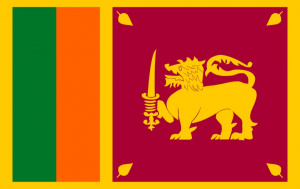Difference between revisions of "Language/Sinhala/Culture/European-Colonization-and-Independence"
m (Quick edit) |
m (Quick edit) |
||
| Line 1: | Line 1: | ||
<span pgnav> | |||
{| class="wikitable pg_template_nav" | |||
|[[Language/Sinhala/Culture/Ancient-Civilization-of-Sri-Lanka|◀️ Ancient Civilization of Sri Lanka — Previous Lesson]] | |||
|[[Language/Sinhala/Vocabulary/Listening-and-Reading-Comprehension|Next Lesson — Listening and Reading Comprehension ▶️]] | |||
|} | |||
</span> | |||
{{Sinhala-Page-Top}} | {{Sinhala-Page-Top}} | ||
| Line 73: | Line 80: | ||
{{Sinhala-Page-Bottom}} | {{Sinhala-Page-Bottom}} | ||
<span links></span> | <span links></span> | ||
<span pgnav> | |||
{| class="wikitable pg_template_nav" | |||
|[[Language/Sinhala/Culture/Ancient-Civilization-of-Sri-Lanka|◀️ Ancient Civilization of Sri Lanka — Previous Lesson]] | |||
|[[Language/Sinhala/Vocabulary/Listening-and-Reading-Comprehension|Next Lesson — Listening and Reading Comprehension ▶️]] | |||
|} | |||
</span> | |||
Revision as of 18:51, 29 March 2023
| ◀️ Ancient Civilization of Sri Lanka — Previous Lesson | Next Lesson — Listening and Reading Comprehension ▶️ |
As a Sinhala language teacher, it is essential to include cultural information and interesting facts in my lessons. In this unit, we will explore the impact of European colonization on Sri Lanka, its struggle for independence, and its path to modernization.
After mastering this lesson, these related pages might interest you: Festivals and Celebrations & Sinhala Cuisine.
European Colonization
The Portuguese were the first to arrive in Sri Lanka in the early 16th century. They were followed by the Dutch in the 17th century and the British in the 18th century. These European powers fought for control over Sri Lanka, which led to a long period of colonial rule that lasted until the mid-20th century.
The Portuguese introduced Christianity to Sri Lanka and left a lasting influence on the country's cuisine, especially in the coastal regions. The Dutch, on the other hand, focused more on developing the country's infrastructure, including the construction of canals and forts. The British, who ruled the longest, introduced vast changes to the island's economy, including the plantation of crops such as tea and rubber.
Despite these changes, however, the local population suffered under colonial rule, with many losing their land and being forced to work on plantations under harsh conditions.
Sri Lanka's Struggle for Independence
It was only in the 20th century that the struggle for Sri Lanka's independence gathered pace. Leaders such as D.S. Senanayake and Don Stephen were at the forefront of the independence movement, which ultimately led to independence from British rule in 1948.
However, the initial years of independence were fraught with turmoil, including social and political unrest, which eventually led to tensions between the Sinhalese and Tamil communities. Sri Lanka remains ethnically and religiously diverse, with a range of languages spoken including Tamil, English, and Sinhala.
Sri Lanka's Path to Modernization
Independence opened up new opportunities for Sri Lanka, including the establishment of the country's first university in 1942, which helped to promote education and academic excellence. The country also joined the United Nations in 1955 and became a republic in 1972.
Sri Lanka's economy also developed rapidly, diversifying from the plantations established by the British to include a range of industries such as textiles, tourism, and information technology.
In conclusion, the impact of European colonization on Sri Lanka was significant, and it took the country many years to recover from the effects of colonial rule. However, Sri Lanka's struggle for independence and its path to modernization are positive steps that have enabled the country to thrive in the modern era.
Here is an example of a Sinhala vocabulary table:
| Sinhala | Pronunciation | English |
|---|---|---|
| පොඩ්ඩන් | poddan | orange |
| කොළ | kola | banana |
| මාළු | malu | fish |
| කොළඹ | kolamba | Colombo |
- Sri Lanka's colonization by European powers had a lasting impact on the country's architecture, religion, and cuisine.
- Sri Lanka's struggle for independence was led by local leaders who fought for their people's rights and sovereignty.
- Sri Lanka's path to modernization has helped to diversify its economy and establish it as a thriving nation in the present-day.
Other Lessons
- Sinhala Cuisine
- Sri Lanka Timeline
- Sinhala Folklore and Legends
- Ancient Civilization of Sri Lanka
- Festivals and Celebrations
- Traditional Arts and Crafts
| ◀️ Ancient Civilization of Sri Lanka — Previous Lesson | Next Lesson — Listening and Reading Comprehension ▶️ |
